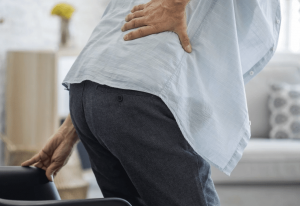
The increase in teenage heroin use has also been dramatic. According to reports, 212,000 people aged 12 or older have abused heroin for the first time within the past 12 months. As one of the most addictive types of substances, opiates continue to be a danger to our society. If you’re worried about yourself or someone you love potentially developing an addiction, here is some information about what to look for.
How Can I Recognize Signs of Opiate Addiction?
There are many psychological or behavioral symptoms that you can be on the lookout for when attempting to discern whether or not someone is developing an addiction to opiates. Improved alertness or sensitivity to sensory stimuli are common physical symptoms. High blood pressure, constricted blood vessels, or improved alertness may also be signs of opioid abuse.
Individuals who experience abandonment of important activities or are unsuccessful in their attempts to discontinue the use of opiates are often experiencing the early stages of prescription drug addiction. Other symptoms of prescription drug addiction, including irritability, depression, euphoria, or anxiety, may also become present during these early stages as well.
What Can Happen to the Body Due to Opiates Addiction?
The body can eventually become extremely damaged by continued opiate abuse, the drugs even affecting the brain. Common effects include:
- Constipation
- Confusion
- Nausea
- Chest pain
- Physical and psychological dependence
- Bronchospasm
Another unfortunate side effect of long-term addiction is death. As individuals continue to abuse opiates, they often build a tolerance, requiring higher doses with each use to achieve the same euphoric feeling. This can and often does lead to an eventual overdose, from which some individuals never recover.
Thankfully, opiate withdrawal effects are seldom fatal. It’s common to experience stomach pain, cold sweats, trouble sleeping, or pain in the bones during a period of withdrawal. For many individuals, there’s a strong urge to seek out opiates during this time. If you can make it through this withdrawal period, which you shouldn’t do alone, you will set yourself up for treatment to begin.
Opiates Addiction Usually Requires Quality Treatment To Get Better
Many individuals suffering from addiction to opiates will have a hard time successfully treating themselves for their addiction. Furthermore, treating yourself for your addiction can be dangerous. The best solution is to seek out a reputable Florida inpatient rehabilitation facility away from your everyday environment. One of the best places to travel to for treatment is Florida.
When you begin to seek treatment for the early signs of addiction, it can be beneficial to search for treatment facilities that utilize evidence-based techniques to ensure that you offer yourself the absolute best chance at success. Some common examples include:
- Gender-responsive treatment
- Expressive therapy
- Behavioral modification therapy
- Medical detox for men and women
- Family therapy program
Lakeview Health is a nationally-accredited treatment center located in Jacksonville, Florida. Offering programs that are designed to be tailored to each unique individual seeking treatment, our center’s experienced staff members will work hard to help you achieve your sobriety.
There’s no better time to begin seeking sobriety than right now. Call Lakeview Health today at 904.677.5010 to learn more about taking your first step toward a healthier future.